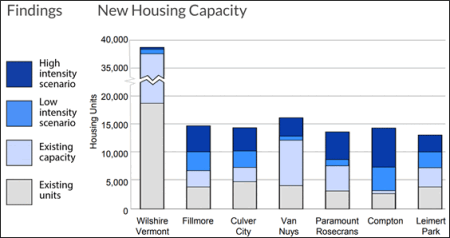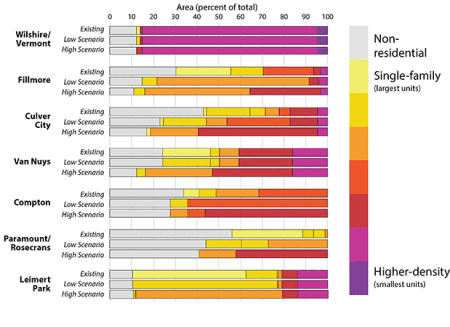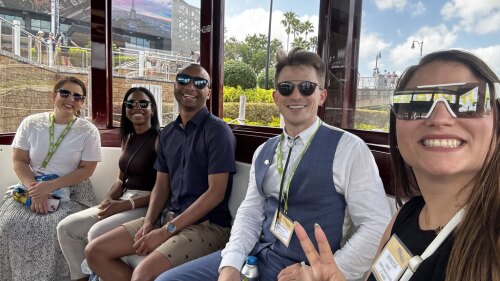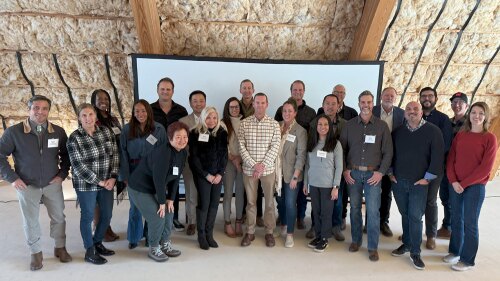ULI Los Angeles (ULI-LA), together with the Los Angeles County Metropolitan Transportation Authority (LA Metro), engaged the UCLA Lewis Center for Regional Policy Studies and the Los Angeles Planning and Land Use Society to study seven half-mile (0.8 km) transit station areas in Los Angeles County in order to determine the positive effects that more development near transit might have on transit ridership, as well as on sustainability, economic development, health, and quality of life in Los Angeles. The research was the centerpiece of ULI-LA’s annual Transit-Oriented Los Angeles event in downtown Los Angeles in November 2018.
The researchers concluded that while larger-scaled residential developments would result in the biggest advances, significant gains in housing production and improved quality of life could be achieved from building types that are considerably smaller in scale, including duplexes, fourplexes, and mid-rise buildings with as few as 20 units. Recommendations for policymakers included the following: legalizing more housing of more types during ongoing planning processes, protecting current renters while incentivizing new affordable units, and removing parking requirements near transit.
The research has contributed to the conversation at a time when housing and transportation are being hotly debated in California. The state’s new governor has set ambitious goals for housing production, and at the local level, Los Angeles County is making an unprecedented investment in transportation. Measure M, which was approved by 71 percent of the county’s voters in 2016, is ushering in more than $120 billion toward building out a multimodal transportation network throughout the region over the next 40 years, with a number of projects being considered for accelerating in time for the 2028 Summer Olympics to be hosted in Los Angeles. The report provides timely, evidence-based recommendations for changes to land use zoning as well as messaging on the benefits of linking transit and land use.
“As the Los Angeles region grapples with housing affordability and other social crises, investing in transit-oriented communities can be a powerful force for good,” said ULI-LA Transit-Oriented Los Angeles chair and LA Metro deputy executive officer Nick Saponara at the conference. “The new research reveals the potential for more Angelenos living, working, and playing in areas where they have mobility choices and a better quality of life.”
ULI Members: Access This Report and More in Knowledge Finder






